
Tips For A Smooth Switch To Organic Skincare
Key Takeaways:
- Start With What Matters Most: Transitioning to organic skincare doesn't have to be overwhelming — begin with core products like a cleanser, serum, and organic face moisturizer.
- Read Labels and Ignore the Hype: Greenwashing is everywhere. Identifying real organic skin care ensures your choices are safe, effective, and aligned with your values.
- Patience Leads to Real Results: Your skin may need time to adjust, but organic products like Sacred Serum and Rose Toner work deeply to support long-term health and glow.
Tired of layering products that promise results but leave your skin confused and reactive? That might be your skin’s way of asking for something simpler — and cleaner. The truth is, many conventional products are packed with synthetic fillers that do more harm than good. Transitioning to organic skin care is like giving your skin a breath of fresh air — one that’s free from harsh chemicals and full of real nourishment.
At Sacred Rituel, we don’t follow skincare trends—we set a higher standard. With roots in herbal medicine and a commitment to purity, we craft our formulas using only organic, cold-pressed botanicals and medicinal-grade plant oils. Our products are designed not only to work but also to heal, protect, and reconnect you with your skin's natural wisdom. We’re proud to be the face of truly high-integrity organic skin care.
In this piece, we’ll share practical and honest guidance on how to switch to organic skincare — from simplifying your routine to choosing the right organic face toner or moisturizer — so your journey feels easy, not overwhelming.
Why Switch To Organic Skincare?
Switching to organic skin care is more than just a beauty trend — it’s a shift toward treating your skin with the same care you give your body. Just like you may choose organic food for its clean ingredients and lack of harmful chemicals, your skin deserves the same kind of nourishment.
Conventional skincare products often contain synthetic fragrances, preservatives, and harsh chemicals that may disrupt your skin’s natural balance. On the other hand, organic skincare focuses on plant-based, nutrient-rich ingredients that support your skin's health over time.
By learning how to switch to organic skincare, you’re giving your skin a break from potentially irritating additives and making room for nature to work its magic. You may not see overnight changes, but many people notice their skin becoming calmer, clearer, and more radiant as it adapts to a cleaner routine.

Understand What's In Your Current Products
Before switching to organic skincare, it's important to know what you're using on your skin each day. Many conventional products contain ingredients that sound scientific but aren’t always supportive of long-term skin health. This awareness helps you make confident, informed choices moving forward:
Learn To Read Ingredient Labels
Skincare ingredients are listed from highest to lowest concentration, so the first five to ten items are especially important. If you see words like “parfum,” “PEG,” or anything ending in “-cone” or “-paraben,” you’re likely using a synthetic-heavy formula. These compounds are often added for texture or shelf life, but can clog pores, cause sensitivity, or disrupt your skin barrier.
Know The Common Synthetic Offenders
Fragrance, parabens, phthalates, mineral oil, and SLS (sodium lauryl sulfate) are some of the most common ingredients found in conventional skincare. While not all are instantly harmful, many are known to cause inflammation or disrupt hormones over time. This is why switching to organic skin care can feel like a reset button for sensitive or reactive skin.
Understand The Value Of Simpler Formulas
Organic skincare typically uses fewer, more targeted ingredients — and that's a good thing. Instead of twenty unfamiliar chemicals, your organic face moisturizer may include cold-pressed seed oils, plant extracts, and antioxidant-rich botanicals. These ingredients work in harmony with your skin, not against it, encouraging balance rather than covering up symptoms.
Start With The Basics: Cleanser, Moisturizer, Serum
Switching your entire skincare routine all at once can feel overwhelming — and honestly, it’s not necessary. The best approach is to start small by replacing the products you use most often. Focus on the foundational steps of any routine:
Replace Your Cleanser First
Your cleanser is your daily reset — the product that sets the tone for everything that follows. Many conventional cleansers contain harsh surfactants or alcohols that strip your skin's natural oils, leaving it tight or flaky. Swapping in a gentle, oil-based organic skin care cleanser helps maintain your skin barrier while deeply nourishing from the start.
Choose An Organic Face Moisturizer
A high-quality organic moisturizer locks in hydration and supports your skin’s natural renewal process. Look for ingredients like jojoba, rosehip, or shea butter, which are known for their calming and reparative properties. Because organic products rely on nutrient-dense botanicals, a little goes a long way in terms of results and glow.
Add A Botanical Serum For Targeted Benefits
A serum is where you can focus on your specific skin goals — like brightening, smoothing fine lines, or reducing inflammation. An organic face serum often blends antioxidant-rich oils, vitamins, and herbal extracts to deliver visible results over time, without the need for synthetic actives. Applying a few drops after misting with an organic face toner can help the serum absorb more deeply.

How To Read Organic Skincare Labels
One of the most empowering steps in learning how to switch to organic skincare is becoming label-literate. While the front of a product may say “natural” or “green,” the truth is in the ingredient list. Understanding what to look for (and what to avoid) helps you choose products that truly align with clean, organic standards:
Look For Certified Organic Ingredients
Not all "organic" claims are created equal. When possible, choose products that specify certified organic ingredients — often marked with an asterisk or labeled clearly on the packaging. These certifications ensure that the ingredients were grown without pesticides, synthetic fertilizers, or GMOs.
Beware Of Buzzwords And Greenwashing
Words like “clean,” “natural,” and “eco” may sound appealing, but they aren't regulated. Many brands use these terms to market conventional products that still contain harsh or unnecessary synthetics. If you're not checking the back label, it's easy to assume a product is organic when it's really not.
Simplicity Is A Good Sign
Short ingredient lists with recognizable names — like calendula, rosehip, or chamomile — usually mean fewer unnecessary additives. Cold-pressed oils, for example, retain more nutrients and are gentler on sensitive skin than heavily processed ones. If your organic face moisturizer or organic face toner reads more like a garden than a chemistry lab, you're headed in the right direction.
Understand Ingredient Order And Concentration
Ingredients are listed in descending order by weight — meaning the first few items make up most of the formula. If nourishing botanicals or oils appear at the bottom of the list, they may be included in such small amounts that they offer little benefit. A truly effective organic skin care product will place its key, active ingredients near the top, ensuring your skin gets the full advantage of their healing properties.
Give Your Skin Time To Adjust
When switching to organic skincare, it's normal for your skin to go through a brief adjustment period. You're transitioning from synthetic-heavy products to plant-based formulas that work with your skin, not just on it. Patience is key — true transformation doesn’t happen overnight:
- Expect a Short Detox Phase: Your skin may initially react with mild breakouts, dryness, or increased oiliness — especially if it's used to harsh cleansers or alcohol-based toners. This is your skin recalibrating as it sheds buildup and rebalances oil production naturally. A detox phase usually lasts a week or two and is a sign that your skin is learning to breathe again.
- Be Gentle and Consistent: Now is not the time for scrubs, actives, or complicated routines. Keep your regimen simple: a mild cleanser, an organic face toner, a nourishing serum, and an organic moisturizer. Consistency and a gentle hand will help your skin feel safe enough to heal and reset.
- Notice Subtle, Lasting Improvements: Instead of dramatic overnight results, look for signs like calmer redness, fewer dry patches, and a softer glow. Organic skincare works in harmony with your skin’s natural renewal cycle, which takes about 27–30 days. Over time, you’ll begin to notice a steady transformation — one rooted in real nourishment rather than quick fixes.
- Support the Transition With Lifestyle Choices: Your skin reflects more than just what you put on it — sleep, hydration, and diet all play supporting roles. During this adjustment phase, nourish your body with whole foods, drink plenty of water, and prioritize rest. These small shifts can amplify the benefits of your new organic skin care routine and help your skin find balance more quickly.

Final Thoughts
Switching to organic skincare is ultimately about choosing integrity — in what you put on your skin, how you care for your body, and how you engage with the world around you. It’s less about chasing perfection and more about tuning in to what truly supports your skin’s health. The process invites you to slow down, simplify, and connect deeply with your daily rituals.
This shift isn’t just skin-deep; it reflects a broader mindset of conscious living. As you embrace cleaner formulations and more intentional choices, you’re not just nurturing your complexion but aligning with values that prioritize purity, sustainability, and self-respect. Trust the process, stay curious, and let your skin and standards evolve naturally.
Read also:
- The Best Vegan Skincare Brands For Clean, Glowing Skin
- Natural Skincare Ingredients: Benefits For Healthy Skin
- Ingredients To Avoid In Skincare: Protect Your Skin's Health
Frequently Asked Questions About How To Switch To Organic Skincare
Can I mix organic skincare products with my current routine?
Yes, but it’s best to phase out synthetic products slowly to avoid conflicting ingredients. Start by introducing one organic product at a time, like an organic face toner. This allows your skin to adapt without being overwhelmed.
Will organic skincare work for mature or aging skin?
Absolutely — organic products are often rich in antioxidants, vitamins, and essential fatty acids that support collagen production and skin elasticity. Products like Sacred Rituel’s organic moisturizer can deeply nourish aging skin without harsh chemicals. The key is consistency and giving your skin time to respond.
Is organic skincare safe for acne-prone skin?
Yes, and in many cases, it’s better suited because it avoids common irritants like synthetic fragrance and drying alcohols. Look for organic formulations that balance oil production and calm inflammation, like hemp seed or jojoba oil-based products. Always patch test to ensure compatibility.
What makes an organic moisturizer different from a natural one?
Organic means the ingredients were grown without pesticides or synthetic fertilizers and often certified by a regulatory body. Natural products may still contain conventionally farmed ingredients or hidden synthetics. Organic skincare prioritizes purity and environmental sustainability at every step.
How long does it take to see results from organic skincare?
Most people begin noticing subtle changes—like smoother texture or less redness—within 2 to 4 weeks. Your skin typically renews itself every 27–30 days, so full benefits appear with consistent use. Give it time and don’t jump between products too quickly.
Can I wear makeup over organic skincare products?
Yes, and many organic oils and serums create a smooth, hydrated base for makeup. Just allow time for the product to absorb before applying foundation or sunscreen. Sacred Serum leaves a soft matte finish perfect for layering.
Is it more expensive to switch to organic skincare?
Initially, some organic products may cost more due to the purity and quality of ingredients. However, because they’re often multi-functional and concentrated, a little goes a long way. You might even simplify your routine and buy fewer products overall.
Do organic face products expire faster?
Yes, because they’re free from synthetic preservatives. Most organic skin care products, including organic face moisturizers and toners, have a shorter shelf life but higher potency. Store them in a cool, dry place and use them within 6–12 months.
Should I use an organic face toner even if I have oily skin?
Definitely — many organic face toners help balance sebum without over-drying. Look for alcohol-free formulas with ingredients like rose water or green tea. Toners prep your skin to better absorb the next steps in your routine.
What are the signs that a product claiming to be organic isn't truly clean?
Look out for long ingredient lists with unrecognizable names, added colorants, or synthetic fragrance. If a product doesn’t clearly list organic percentages or certification, be cautious. Truly organic skincare brands, like Sacred Rituel, are transparent about their sourcing and process.
Sources:
- Mim, M. F., Sikder, M. H., Chowdhury, Md. Z. H., Bhuiyan, A.-U.-A., Zinan, N., & Islam, S. M. N. (2024). The dynamic relationship between skin microbiomes and personal care products: A comprehensive review. Heliyon, 10(14), e34549. https://doi.org/10.1016/j.heliyon.2024.e34549
- Selwyn, A., & Govindaraj, S. (2023). Study of plant-based cosmeceuticals and skin care. South African Journal of Botany, 158, 429–442. https://doi.org/10.1016/j.sajb.2023.05.039
- Hoang, H. T., Moon, J.-Y., & Lee, Y.-C. (2021). Natural Antioxidants from Plant Extracts in Skincare Cosmetics: Recent Applications, Challenges and Perspectives. Cosmetics, 8(4), 106. https://doi.org/10.3390/cosmetics8040106
- Testa, R., Vella, F., Rizzo, G., Schifani, G., & Migliore, G. (2024). What drives and obstacles the intention to purchase green skincare products? A study of the Italian market of green skincare products. Journal of Cleaner Production, 484, 144358. https://doi.org/10.1016/j.jclepro.2024.144358

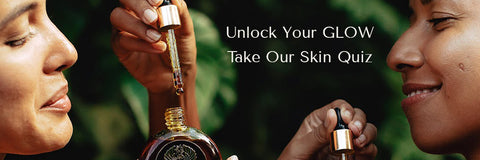

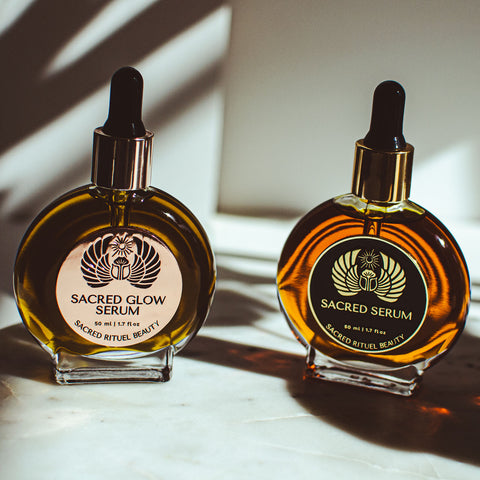
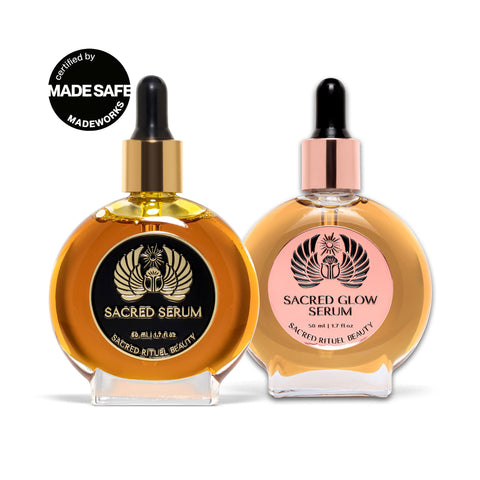
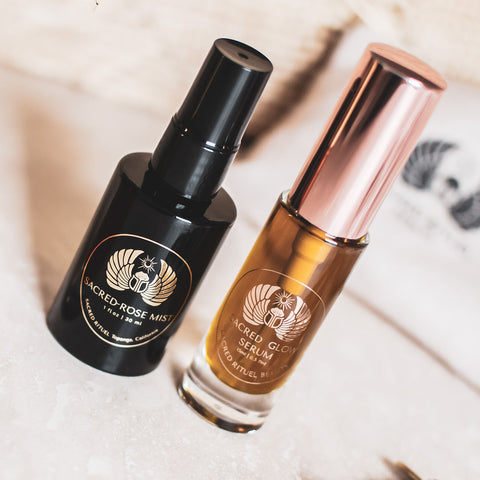
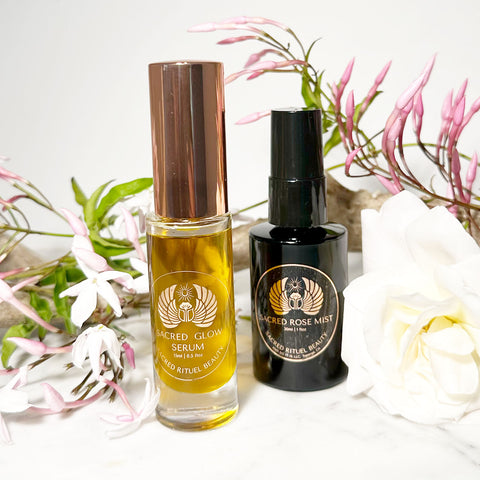
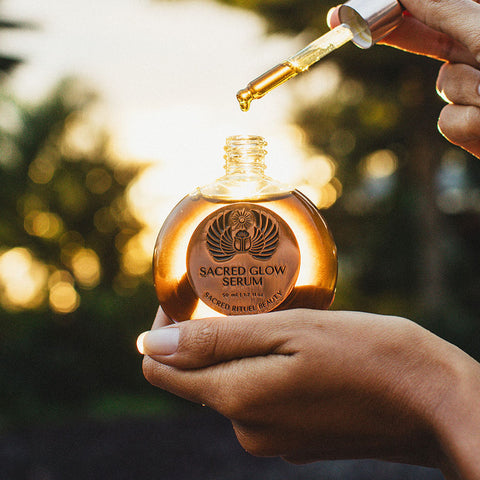
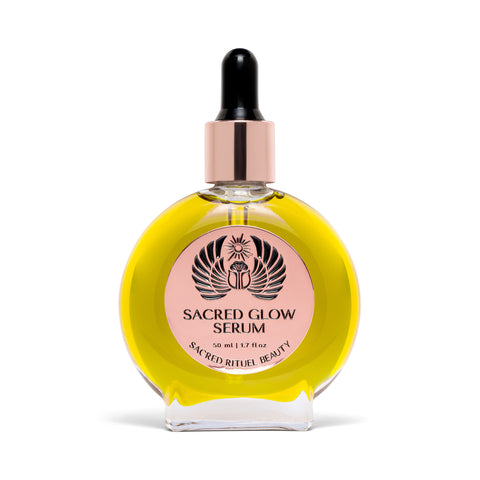
Comments (0)
There are no comments for this article. Be the first one to leave a message!